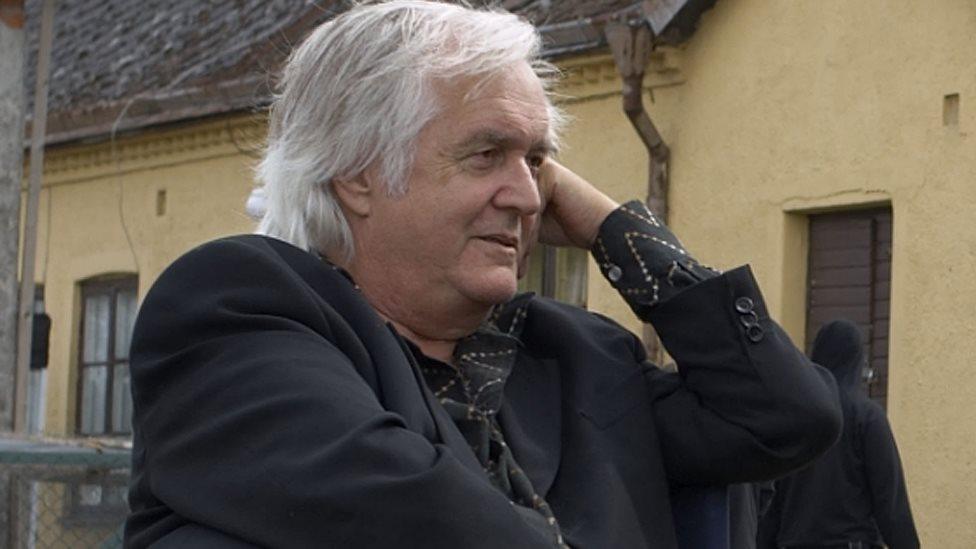How 'Scandi crime' made a killing
- Published

TV shows such as The Killing have encouraged British writers to take on crime fiction
The critical cliche is that in crime fiction much of the heat in recent years has been from the cold north. Nordic Noir has influenced British crime-writing, on television and bookshelves. So what lessons have British writers learned from their northern neighbours? And has the phase passed?
Yrsa Sigurdardottir has a job in civil engineering in Reykjavik. Her appropriately Icelandic specialism is geothermal and hydroelectric technology.
But in her spare time she's also one of the country's most successful exponents of Nordic Noir. Her novels about lawyer Thora Gudmundsdottir are bestsellers and many of Sigurdardottir's books have now been translated into English.
Like many Scandinavian crime writers, she sees a long and complex relationship between what's now branded Nordic Noir and the English-language tradition of crime-writing.
"It's only been in the last 20 years that crime fiction has been seen as a respectable thing to write in Iceland. People always objected that we had a low crime rate so setting big crime stories here would not be credible.
"It's true Iceland doesn't have big gangs or violent crime syndicates.
"Crime fans used to read mainly American novels or they'd read well-known British writers like Ruth Rendell.
"Then the world discovered Scandi or Nordic Noir and suddenly readers got a taste for trouble in Reykjavik or Stockholm. Mainly it was expressed in psychological terms."
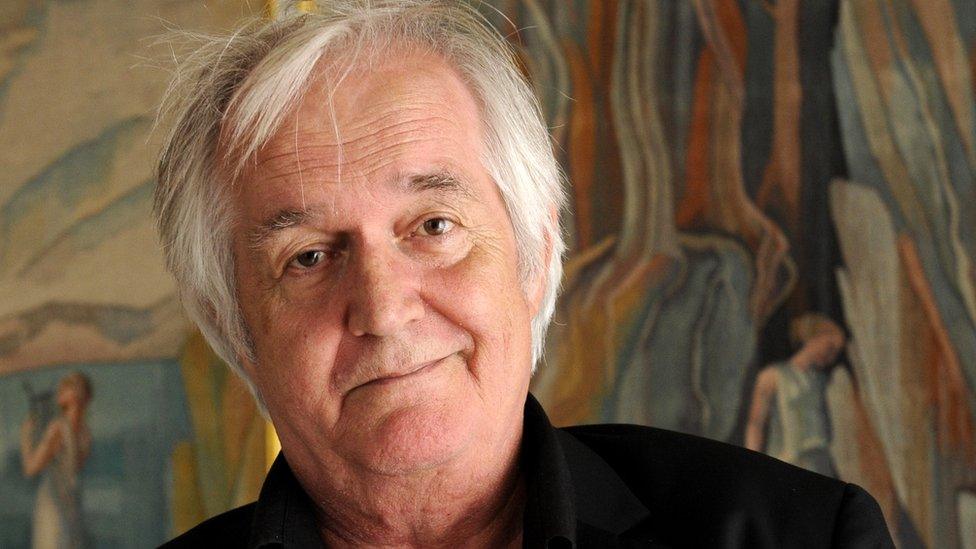
Wallander creator Henning Mankell has a huge global following
The critic Barry Forshaw published a book about Nordic Noir in 2013 and has now followed up with a guide to the UK equivalent.
"The links between the two traditions are quite involved," he says. "These days you need to consider TV as much as the written page."
Forshaw says early Scandinavian crime writers were not much read elsewhere. "There was Maria Lang who you might call the Swedish Agatha Christie. But the progenitors of modern Scandinavian crime-writing were really Maj Sjowall and Per Wahloo.
"They created the dyspeptic Scandinavian copper Martin Beck, who has been much imitated. Then came Henning Mankell, who gained a big audience around the world.
"I think one of the most important influences on Scandinavian crime-writers was Conan Doyle. There's an element of Sherlock Holmes in so many of their creations. It shows how far back these links go.
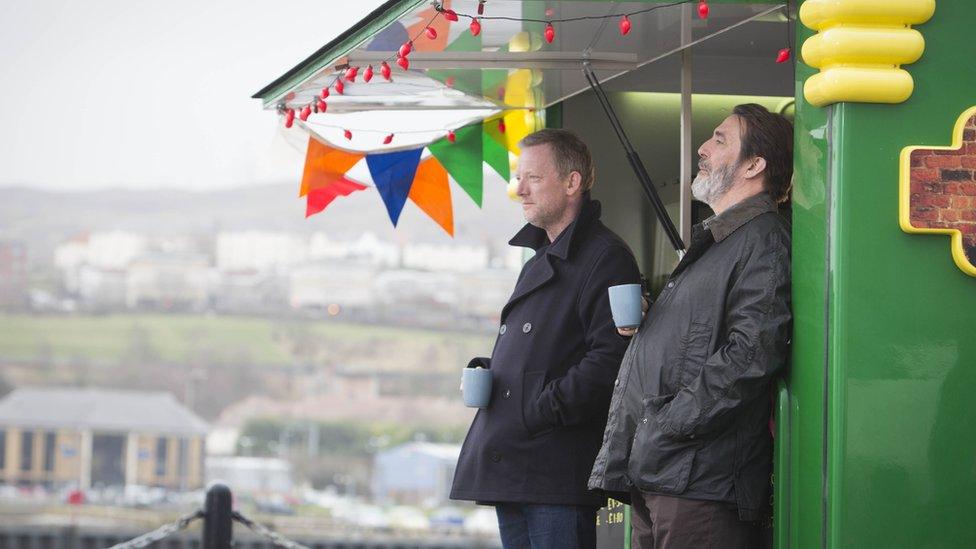
The influence of the natural surroundings in BBC crime drama series Shetland has 'echoes of Nordic Noir'
"But what makes their writing more Scandinavian is the element of social commentary. It's one of the things which has influenced Brit Noir.
"Many of the great pioneers of Nordic Noir were of the 1960s generation, who were keen to point out the iniquities of society - Sjowall and Wahloo thought Sweden was simply corrupt.
"At the time, we in Britain thought Scandinavians were all tall and beautiful and existed in some sort of social paradise. The crime fiction came as a shock."
By coincidence, Derbyshire-based novelist Sarah Ward has just been in Iceland finishing the third of a planned quartet of crime novels which started with the hit In Bitter Chill.
Her books' chosen locale is a carefully described Peak District. Iceland's attraction is the peace and quiet but she acknowledges that many British crime writers keep an eye on what is emerging from Scandinavia.
"When you read Nordic crime fiction the setting is far more than an adjunct to the plot: it becomes almost an antagonist. In Iceland, I find you're always aware of the beauty of the landscape and any writer would want to exploit that potential.
"It's had an influence on me and on other authors too: they've taught us to create tension from landscape in a way we just weren't doing.
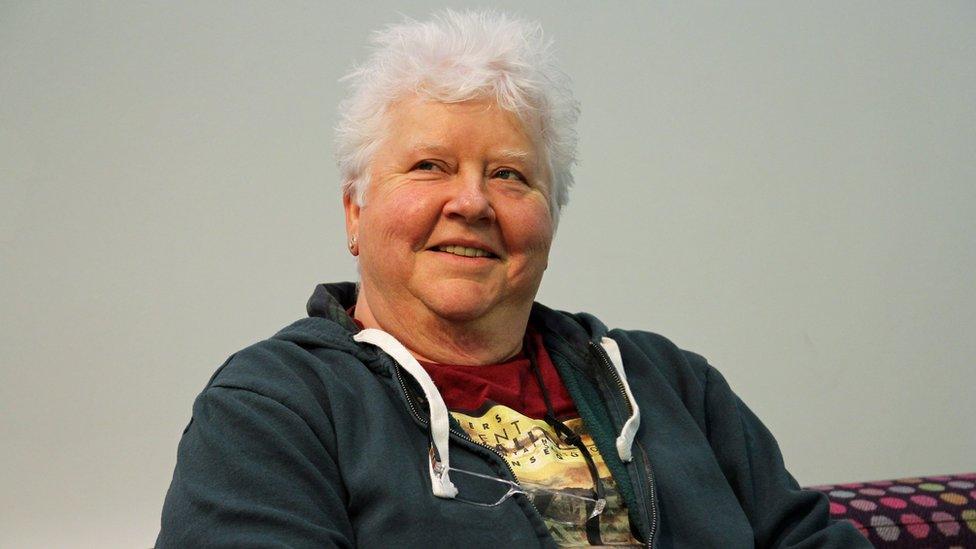
Scottish writer Val McDermid: The 'new queen of crime'
"When people talk about Scandi-crime fiction they're often thinking of TV series such as The Bridge and The Killing where physical surroundings are attractive. So in the last decade in the UK, there's been a real explosion of crime novelists adopting parts of the country to write about.
"But no one can own a locality. I run crime-writing workshops with local authors, all of whom find the Peak District a massive inspiration. So maybe one day, we'll have a whole school of Derbyshire Noir."
Barry Forshaw agrees Nordic Noir on TV has encouraged a new interest in British regional identity and landscape. "It's probably less true of Scandinavia's novels where actually the setting can be surprisingly urban and fairly anonymous.
"But the beauty of the rural landscape entrances people in Britain sitting on the sofa watching TV on a Sunday night. It's fed into what some people are writing."
Forshaw thinks the success of a series like The Killing means British writers and TV producers have become more willing to take time with storytelling and even risk being thought gloomy.
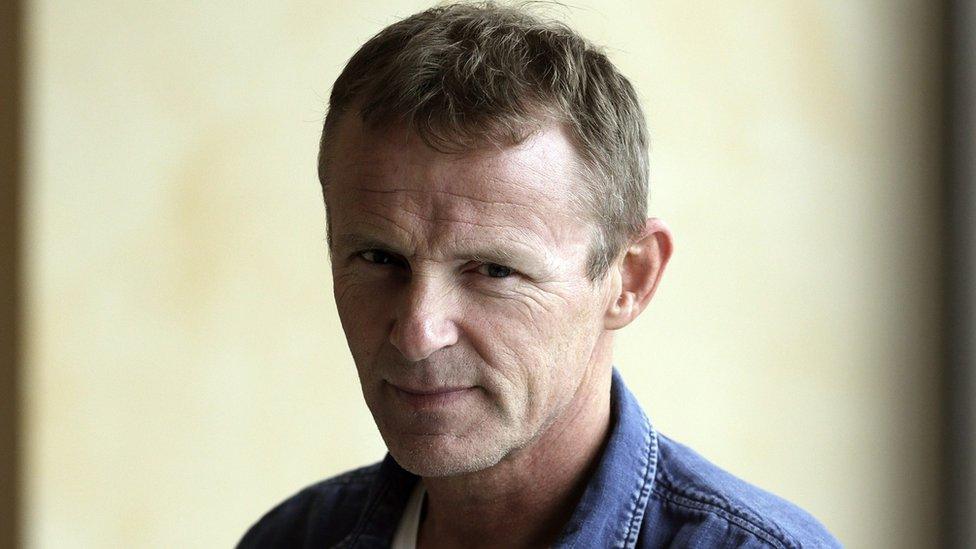
Norwegian writer Jo Nesbo relies on highly skilled translators for his success in Britain
"The Scandinavians did a lot to kill off the Sweeney tradition of car chases and fist fights every 10 minutes in case the audience gets bored. They reminded us to relish the steady unfolding of plot.
"So if you take the BBC series Shetland, viewers quickly picked up the echoes of Nordic Noir. And it's interesting that ITV have now imported Hans Rosenfeldt, who was behind The Bridge, to write the Anna Friel drama Marcella."
Having written his new book about Brit Noir, Forshaw says it's impossible to unpick exactly who influenced whom.
"Take Scotland's Val McDermid, who with both PD James and Ruth Rendell gone, is often now called the new queen of crime.
"Her concerns are very much those of the Nordic writers but it's not a matter of imitation: there's cross-fertilisation.
"In Stieg Larsson's The Girl with the Dragon Tattoo the central character is actually reading a Val McDermid book. It was just a tiny reference to how integrated all of this is.'
Yet there's one aspect of the relationship between Brit and Nordic Noir which Forshaw says has not had enough attention.
"When we read, say, a Jo Nesbo we're actually reading a translation into English. And the standards of translation are now very high indeed: the authors know who the best translators are and they'll wait a year until they're available. The best Nordic Noir in English is often praised for its use of language. It's pushed up the standard of crime writing overall."
Barry Forshaw says more than pacing or the focus on landscape, the lasting effect of Britain's love affair with Nordic Noir may lie simply in the quality of what we get to read.
Brit Noir by Barry Forshaw is published by Pocket Essentials
- Published5 October 2015
